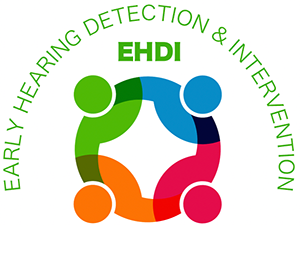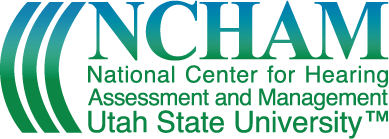Webinar: Increased Paternal Linguistic Input to Children with Hearing Aids during the COVID-19 Pandemic
When: October 21, 2021 | 12:00 pm - 1:00 pm MT
Description
The COVID-19 pandemic has seen an unprecedented shift of the workforce toward telework, a change which has the potential to significantly alter the early auditory environments of children whose parents work. For deaf and hard-of-hearing children, whose language acquisition and cognitive development outcomes may be more sensitive to variations in linguistic input, these changes may prove to be consequential. A recent study examining the effects of COVID-19 on gender equity (Alon, et al. 2020) posits an increase of paternal participation in childcare responsibilities in mother-father households due to men having greater access to and participation in occupational fields that would support working from home. In this project, we investigated the influence of the COVID-19 pandemic on parental linguistic input to children with hearing aids. Our team collected and analyzed 13 naturalistic recordings from 4 families of children with hearing aids using the Language Environment Analysis (LENA) system before and during the pandemic. All four families included a mother and a father and were of similar socio-economic status by parental education and income. Automated measures generated by LENA, including adult word count (AWC), female adult word count (FWC), and male adult word count (MWC) were extracted and compared. To account for variations in the durations of recordings, we normalized the measures by hour. There was an increase in average MWC/hr (156.80 pre-pandemic, 228.69 during) and in proportion MWC of AWC (17.81% pre-pandemic, 31.95% during). However, both average AWC/hr (1070.68 pre-pandemic, 773.86 during) and average FWC/hr (837.77 pre-pandemic, 545.16 during) decreased, which could help to explain part of the proportional uptick of MWC. These preliminary findings contribute to our understanding of how the COVID-19 pandemic may be affecting early linguistic environments, which can in turn inform evolving clinical practices relating to deaf and hard-of-hearing children (e.g. increased early intervention coaching for fathers).
Learning Objectives
- Participants will be able to describe the effects of the COVID-19 pandemic on parental linguistic input.
- Participants will be able to describe overall preliminary findings from this study.
- Participants will be able to describe clinical implications of these findings.
Presenters
Molly Cooke is a research coordinator in the Department of Otolaryngology at The Ohio State University Wexner Medical Center. She joined the research team at OSU in 2019 after earning her bachelor's degree in linguistics from Georgetown University, where she wrote her honors thesis on speech communities among adult cochlear implant users. She now works on projects studying language acquisition in deaf and hard-of-hearing infants and toddlers, particularly using the Language ENvironment Analysis (LENA) system.
Carrie Davenport, Ph.D., is a Postdoctoral Researcher in the Department of Otolaryngology at The Ohio State University Wexner Medical Center. She earned her doctorate in special education at OSU in 2017. Prior to entering the PhD program at OSU, she was the Early Childhood Consultant for the Center for Outreach Services at the Ohio School for the Deaf. Carrie is a founding Board member of Ohio Hands & Voices. She currently serves on the steering committee for Children's Hearing Language and Development Resource Network (CHLDRN) of Ohio.
Derek M. Houston, PhD, joined the Department of Otolaryngology-Head and Neck Surgery at The Ohio State University College of Medicine July 2015. He received his doctorate in psychology from Johns Hopkins University in 2000. His graduate training research focused on how normal hearing, typically developing infants segment words from fluent speech and recognize words across different talkers. After graduating, he moved to Indiana University School of Medicine and constructed the world's first laboratory to investigate the speech perception and language skills of deaf infants who receive cochlear implants. Since then, his work has investigated the effects of early auditory deprivation and subsequent cochlear implantation on speech discrimination, attention to speech, sensitivity to language-specific properties of speech, word learning, and general cognitive skills in deaf infants and toddlers. His research in Columbus, OH represents a collaborative effort between OSU and Nationwide Children's Hospital. His work is currently funded by the NIDCD.


